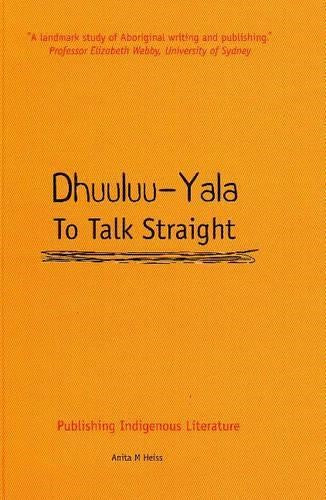Description
Dive deep into the world of Indigenous literature with 'Dhuuluu-Yala - To Talk Straight'. This essential guide, published by Aboriginal Studies Press, explores fundamental issues surrounding the publishing of Indigenous literature in Australia. Written in 2003 and bearing the ISBN 9780855754440, this book combines historical perspectives with contemporary challenges faced by writers. The term 'Dhuuluu-Yala' means 'to talk straight', representing the transparent and honest conversation about the realities of engaging with readers and reviewers in the literary scene. The book spans from the mid-1900s to the early 2000s, discussing the ongoing struggles that Indigenous writers contend with, including the historical context of Aboriginality and the evolution of Aboriginal writing today.
Explore the significant contributions of pioneering Aboriginal authors, who have forged pathways for a burgeoning Indigenous publishing industry. This vital resource highlights the vital need for authentic Indigenous voices in Australian literature while addressing both the opportunities and obstacles present in the current landscape. From funding challenges to the rise of self-publishing, 'Dhuuluu-Yala' sheds light on the path forward for future writers. Perfect for students, educators, and anyone interested in the evolution of Indigenous narratives in literature, this book is a must-have for those looking to comprehend the complexities of Aboriginal representation in writings. Unlock the potential within 'Dhuuluu-Yala - To Talk Straight' and engage with the rich tapestry of Indigenous storytelling.
Explore the significant contributions of pioneering Aboriginal authors, who have forged pathways for a burgeoning Indigenous publishing industry. This vital resource highlights the vital need for authentic Indigenous voices in Australian literature while addressing both the opportunities and obstacles present in the current landscape. From funding challenges to the rise of self-publishing, 'Dhuuluu-Yala' sheds light on the path forward for future writers. Perfect for students, educators, and anyone interested in the evolution of Indigenous narratives in literature, this book is a must-have for those looking to comprehend the complexities of Aboriginal representation in writings. Unlock the potential within 'Dhuuluu-Yala - To Talk Straight' and engage with the rich tapestry of Indigenous storytelling.

